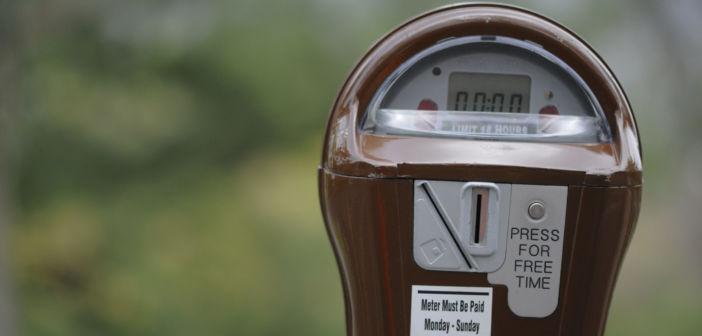A memo outlining significant changes to the “Connections” parking plan, set to launch July 1, was sent on March 21 to faculty and staff.
The biggest change is permitting parking for any faculty or staff who works on Asa Packer campus to park on that campus. All members will receive a salary increase of $250 in order to offset the new parking rates, which will be $500 for parking on Asa Packer campus, $250 on Mountaintop and free for the commuter lots at Goodman Campus and at a new lot that will be leased for faculty, staff and graduate students near SteelStacks.
Currently, faculty and staff pay between $24 and $96 for parking on campus depending on salary, according to Mark Ironside, the executive director of University Business Services.
A shuttle will be provided for those who park in the lot near SteelStacks, dropping commuters off near Whitaker and running continuously from 6:30 a.m.-8 p.m. Those who park at Goodman will be on the Campus Connector bus line.
Ironside said the cost for this new shuttle will be approximately $12,500, including maintenance, insurance and electric. The shuttle will be an existing electric bus, helping to reduce the cost. However, Ironside said he could not disclose the cost in salary for additional drivers.
In the original proposal, the designated “car-free zone,” which extends from Farrington Square to University Drive, would eliminate parking starting in July with the exception of Packer Avenue. However, Ironside said after over 100 stakeholder meetings with departments on campus and an 18-month planning process, the administration decided to cut back gradually.
With 300 parking spaces on Asa Packer, only the 130 spots that will be lost due to construction for the College of Health will be unavailable for next year, leaving 170 remaining.
Ironside said the feedback he and University Architect Brent Stringfellow received was integral to these newest changes.
“Parking is a hot button issue on every single campus, so I think the feedback we got was largely about the registration process itself, which we changed,” Ironside said.
Initially, registration was planned as a first come, first serve basis. Now, due to raised concerns, all commuters will be able to register at any point between April 8 and April 21 to select their preferred lot.
The parking changes work in tandem with the new bus routes, the purchase of more buses and the hiring of more bus drivers, Ironside said. He said one bus could cost between $150,000-$400,000.
“We wanted to give employees a chance to ride the buses before we implement the parking changes on July 1,” Ironside said. “We wanted to try the new transit system before we make changes. After the parking registration process, we’ll have a good sense of how many parkers will be in each zone, and then we can make further adjustments.”
He said his goal is to fill 85 percent of each lot and leave 15 percent available for visitors, guests, parents, alumni and new hires, especially as the campus is growing.
Student feedback was taken into account, as after 4 p.m., those with a Lehigh permit can park freely around campus until 6 a.m., as opposed to 11:30 p.m. now. Ironside said students are already making some of the changes he hopes the staff and faculty will make when it comes to cars, given that fewer students have cars on campus as they take advantage of services like Lyft and Uber.
Even with these newest changes, the tiered pricing is still in place, and not everybody is happy.
“It could (alienate certain factions), and that’s where the $250 bonus comes in,” said Patricia Johnson, vice president for Finance and Administration. “They’re just not used to paying for parking here. But we will alienate someone, of course, always. You’d be surprised, it’s not even by salaries. It’s people who don’t like change and people who don’t believe parking is a cost to the university.”
Goals for the new changes
Johnson said parking rates haven’t changed in 22 years, and these new changes are necessary because “we cannot keep increasing tuition like the way that we have.”
One of the main goals, Johnson said, is to no longer pay for parking using tuition dollars but have it break even and pay for itself.
“So, we have to find ways to lessen the burden, and clearly parking is a cost center, so it needs to live on its own and it’s not, so how do we get there?” Ironside said. “One of the ways is to increase the cost of parking, and there’s pretty clear research that increasing the cost of parking causes people to make different decisions about how they approach their parking, their needs, their transit, their transportation. We are trying to change behavior. We want people to make different choices.”
Changing behaviors to create a more walkable, pedestrian-friendly and sustainable campus is a prominent aspect of the new plan.
“I feel strongly about the more we can make the inner part of campus pedestrian only, the more it will enhance quality of life at Lehigh for students, faculty and staff,” Stringfellow said. “In parallel impact in terms of sustainability, the less people driving around individually in single occupied vehicles, the less carbon emissions.”
The parking plan will make the campus more accessible for all, Ironside said. Lehigh will include 211 disability parking spaces, compared with the 119 offered now. A disability service called AccessLU will be available for faculty and staff starting July 1, similar to the service in place for students.
Ironside said congestion on campus and walkability is tied to the campus aesthetics, and he wants to transition away from students competing with cars and busy streets. Ultimately, Ironside said he wants to see how behaviors change in terms of how many staff and faculty are willing to walk from the lot in the South Side, to save money and to reduce congestion.
Ironside said the full car-free zone will eventually be implemented.
“It would be nice to have a campus that was totally car free, besides the garages,” Johnson said. “We had an accident a few years ago at University Drive where a student got hit because of the sun glare, so it’s just dangerous. That’s the goal on Asa Packer — to get all cars off.”
Looking to the future
Johnson and Ironside both said that these parking changes are not final, and over the next year, they will talk with Provost Pat Farrell to assess the plans and make any necessary changes.
While many of the changes suggested by faculty and staff were made, Ironside said tiered pricing was not changed. He said the administration felt comfortable in the original numbers.
Connections isn’t just parking as it encompasses transportation, too.
“We just launched a bike survey so we have a better sense of where people bike, how many shelters should be built throughout campus, so the other parts of the Connections program haven’t been rolled out yet,” Ironside said. “We’re just thinking about bus shelters and bike racks, too.”
Johnson said the university is also looking into constructing a sidewalk going up to Mountaintop for people to walk or ride up.
She said the university is in negotiations with Bethlehem to close Packer Avenue to regulate traffic and parking meters, and she hopes it will become a reality in the near future.
Stringfellow said a pedestrian walkway on Packer Avenue would unite the historic center of campus with the newer portions.
“We’re in a very early stage of that process in terms of having initial discussions with the city about what that would look like, but it would have a huge impact on campus and getting back to walkability,” Stringfellow said. “It obviously is a great safety improvement in terms of students moving back and forth throughout the avenue, and it would be an amazing amenity.”
Stringfellow said it appears that the new transit system, implemented on March 29, is working out well, and he believes that this was a necessary improvement.
The campus will have to adjust to the new plan in addition to construction on Bridge West, SouthSide Commons and the College of Health.
“You don’t change the culture overnight, and admittedly, we don’t have all the resources in place for people to make those changes,” Ironside said.






Comment policy
Comments posted to The Brown and White website are reviewed by a moderator before being approved. Incendiary speech or harassing language, including comments targeted at individuals, may be deemed unacceptable and not published. Spam and other soliciting will also be declined.
The Brown and White also reserves the right to not publish entirely anonymous comments.